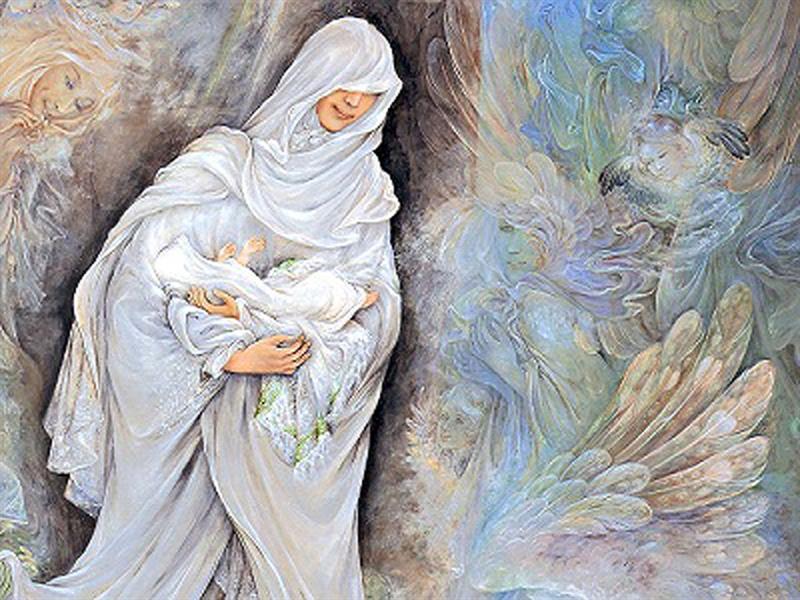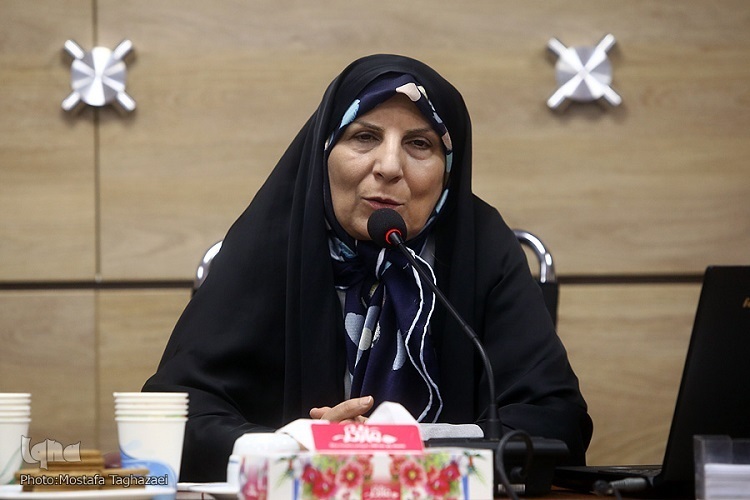Forough Parsa Stated:
“Westerners envy the transformation that the Prophet (PBUH) brought about in women’s rights.”
Western societies have long been envious of the advancements made in women’s rights within the Islamic tradition. The Prophet Muhammad (PBUH) is often credited with revolutionizing the status of women in his time, introducing reforms that challenged prevailing patriarchal norms. This progress, however, has been overshadowed by contemporary misconceptions and misinformation about Islam, leading to a resurgence of Islamophobia.
The Prophet (PBUH) and Women’s Rights
A member of the faculty of the Research Institute of Humanities, while referring to the fundamental transformation that the Prophet (PBUH) created in the rights of women in his time, explained some of the examples of the revival of women’s rights and status in Islam.
Western Envy of Islamic Progress
One of the areas of success of the Prophet (PBUH) and the Islamic religion is the advancement of the rights and human status and value of women in society, which is where, coincidentally, the most propaganda against Islam and Islamophobia takes place. As if the enemies of Islam and the Quran do not want the compassionate approach of Islam towards humans, especially women, to be broadcast and recognized in the world, and for this reason, they try to distort and blacken it.
In this regard, we had a conversation with Forough Parsa, a faculty member of the Research Institute for Humanities and Cultural Studies:
First, please explain the behavior and manners of the Prophet of Islam (PBUH) in relation to women and girls, and how he was able to elevate the status of women, which was in a poor condition in the pre-Islamic era.
The prophet of Islam as the founder of Islamic culture and civilization
I need to make a preface; what I have reached in my studies about the Prophet is that he, as the Prophet of Islam, is the founder of Islamic culture and civilization, and by studying his life, we come to the conclusion that he is a personality who, among the prophets, upgraded the humanistic discourse of Abrahamic religions. He was sent to prophethood in the early seventh century and in a short period of time this religion managed to create significant changes in the geography of that era. Given this issue, the great empires of that time became aware of the greatness of this new religion.As a result, we are faced with a prophet who, relying on his messages and teachings, was able to conquer the world.
The Prophet’s Humanistic Perspective
This clear religion, which was delivered to humanity by the Prophet, in my opinion, presented a humanistic theory and discourse that transformed and upgraded the discourse of other religions.
Human as God’s Caliph
In Islam, human is God’s caliph. God says in the Quran: “Indeed I am going to set a viceroy on the earth” and also states that all the heavens and the earth were created for human.
Equality of All Humans
The Holy Quran states: “We created you from a male and a female, and made you nations and tribes that you may identify yourselves with one another. Indeed the noblest of you in the sight of Allah is the most Godwary among you.” You see in this verse, God Almighty says that your preciousness with God has nothing to do with being male or female, and no tribe or race is a criterion for human dignity and value. With this verse, we understand that the message that the Prophet (PBUH) presented to people has a human rights color and values all human beings as human beings who are God’s caliph.
Gender Equality
Therefore, the Prophet (PBUH), according to the messages he was tasked with delivering, did not differentiate between men and women. What is the basis and part of the Qur’anic teachings is that God taught the Prophet in this way that man as a human being is valuable and being male or female does not interfere with a person’s rank and status.
The Prophet’s Role in Elevating Women’s Status
So far, it has become clear that the Prophet of Islam (PBUH) transformed the humanistic discourse of religions. Now I will answer your question. Well, this is a very important discussion. I have done some work in the field of women and in them I have shown that the Prophet (PBUH) and the Islamic religion created a remarkable transformation in his time in the field of women’s rights. What the Prophet (PBUH) did for women is even envied by Westerners today.
Cultural Transformation
He created several transformations in this regard. First, cultural transformation. We have this in the Quran that God reproaches men who were upset about having a daughter. When Fatima (SA) is born, how happy the Prophet (PBUH) feels. The deep bond between the Prophet (PBUH) and Fatima Zahra (SA) is a testament to his unwavering love and care. Therefore, the Holy Quran rebukes this view that considers women to be second-class citizens. Other religions say that women are seductive and caused Adam to fall from paradise, but the Quran says that Adam and Eve both committed sin and the sin was not only Eve’s sin. Therefore, it tells this story with the dual form.

The story of creation
In the discussion of creation, other religions believe that women were created from the left rib of men, but the Quran says that you were created from a single soul. Therefore, Islam did not consider women to be second-class citizens. In this regard, we have a sura called Surah Nisa, there are frequent verses in the Quran about women. When the Quran wants to describe a believer, it mentions a woman: “one of the examples for a believer is the wife of Pharaoh“. Therefore, the wife of Pharaoh, as a woman, is considered a representative and model of being a believer.
In another verse in the Quran, God mentions all the spiritual aspects of women in front of men one by one: “Indeed the muslim men and the muslim women, the faithful men and the faithful women …“.
Political and Economic Empowerment
Regarding the political status of women, we see that the Prophet (PBUH) makes a covenant with women just as he makes a covenant with men. Regarding the transformation that was created in the economic status of women, we can refer to the determination of mahr, alimony, and the right to use the economic work that women did. Interestingly, the right to ownership that the West gave to women in the early twentieth century was given to women by Islam in the seventh century AD.
The Importance of Human Dignity
The issue of human dignity is an important issue, but unfortunately we are very negligent about it. How was the Prophet’s view of the dignity of human beings?
Mercy to the World
It is true that God said “Indeed, with Allah religion is Islam” but in another place God declares that whoever believes in God and does good deeds will be rewarded. If we want to look at the main characteristic of the Prophet’s personality, the main characteristic of the Prophet (PBUH) was the moral values that he adhered to and the characteristic that God mentions for the Prophet is “A mercy to all the nations“, that means mercy, kindness, and compassion for all those who exist in the world. Therefore, the main characteristic or important component of the Prophet’s personality was this kindness and compassion that he had for everyone.
The Prophet’s Compassionate Nature
Contrary to what Western propaganda says that the religion of Islam is the religion of the sword and violence, there was no violence in the Prophet’s personality.
If we refer to the works of Orientalists themselves, they say that it was actually the opposite and that the Prophet (PBUH) was the Prophet of Mercy. One of their greats, Montgomery Watt, explicitly says that these distortions are due to the feeling of inferiority that Westerners had towards Islam and they were afraid of the presence of Islam in society at that time, so they showed a distorted image of Islam and the violence that Europeans had in their nature and is mentioned in the text of the covenants, they projected it and attributed it to Islam. Our Prophet was the Prophet of Mercy and hated violence and when he came to power after the conquest of Mecca, he showed mercy to all his enemies and forgave them.
Relevance of Human Values in Today’s World
Can this method also work in our world today?
Yes; the issues related to human beings and human principles and ethics are values that originate from human beings themselves and their basis is human beings themselves and are related to human nature. Every human being likes these moral qualities and we cannot say that moral values are historical and these values that the Prophet (PBUH) had were for that time. Anyone who wants to have a human impact on society today cannot succeed without ethics. Therefore, moral values can always be used in human society.
Interview by Ataollah Esmaili
From: iqna.ir


